Auto Insurance FAQs
Most states require you to carry a minimum amount of Liability Insurance coverage and also provide proof of insurance to register a vehicle or renew your license. In the case of an accident, the minimum Liability Insurance required by the state may not be enough coverage to pay for the damages that result after an accident. In this case, the driver responsible for the accident may have to pay additional expenses out of pocket. To determine how much Auto Insurance you need, consider:
- The value of your assets
- How and when you drive
- What you drive
- Who is in the car with you
To ensure everyone on the road is covered in case of an accident, Colorado requires drivers to carry a minimum amount of Liability Insurance that is $25,000 per person and $50,000 per accident for Bodily Injury, and $15,000 for Property Damage. Drivers must also have the ability to provide proof of insurance to register a vehicle or renew a driver’s license.
Insurance companies assess your risk by using a Risk Assessment Indicator, which is a numerical score based on credit report and other information. These Risk Assessment Indicators are highly predictive of future claim activities, helping insurance companies charge a rate that is appropriate for the risk of the insured individual.
While there are a number of factors that contribute to the cost of your premium, there are some things you can do to help reduce it. The car you drive will greatly affect your premium. To lower your Auto Insurance costs, you may consider switching automobiles and driving a safer, slightly older, or less valuable vehicle. The more your vehicle is worth, the more it can cost to insure it. If you don’t want to change cars, you can modify your vehicle to make it safer or lower-risk by adding anti-theft devices or features like anti-lock brakes. In addition, selecting a higher deductible and ensuring that your coverage doesn’t lapse may help you keep your Auto insurance costs down. You can also consider changing your driving habits. Your driving record is one of the most important factors considered when determining your premium. You can also try cutting down on the miles you drive and getting other insurance policies with our agency to save you money.
Deciding on an Auto Insurance policy can seem overwhelming. It is important to choose a local agent who can help match you with just the right coverage for you and your vehicle. When getting an Auto Insurance quote from us our agency will help you every step of the way to choose an Auto Insurance policy that makes sense for you.
Some insurance companies may review your history of insurance coverage with previous auto carriers to determine whether you qualify for coverage and others may use it to establish your premium or to determine whether you are eligible for discounts. This information also verifies whether you have had continuous auto liability insurance coverage and your prior liability coverage limits. Prior insurance information is often used to predict the likelihood of future accidents and coverage lapses.
